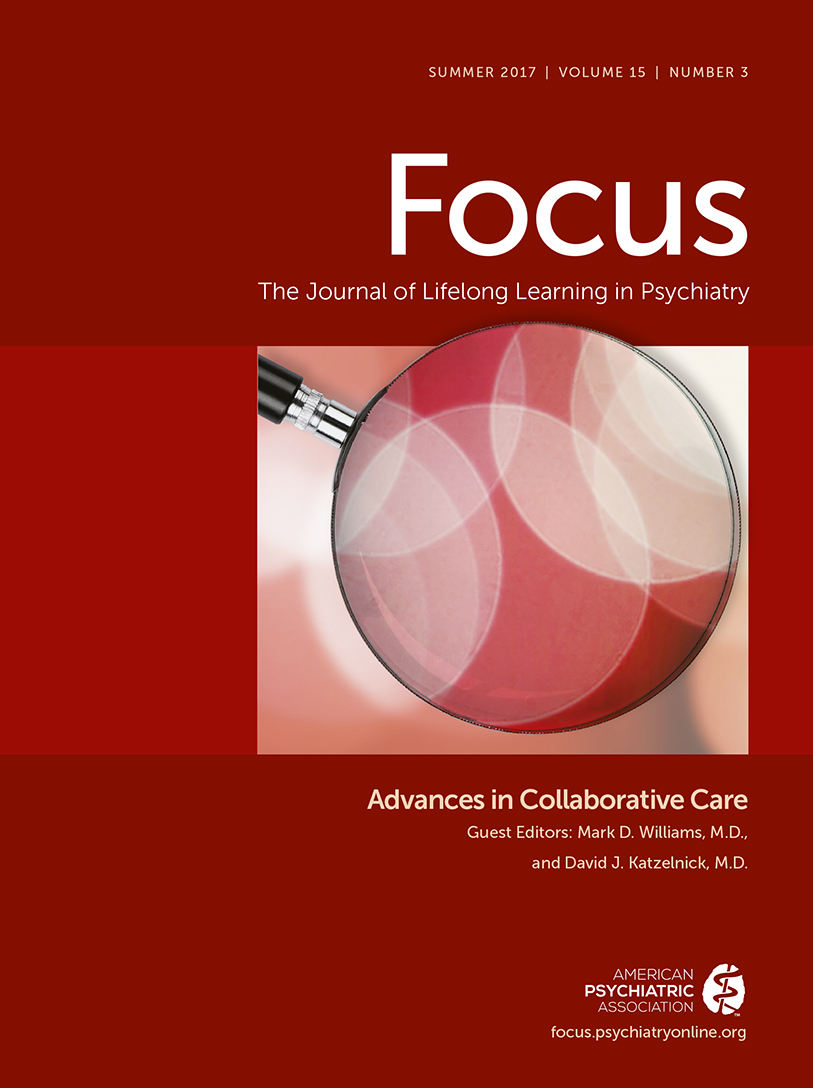The Role of Integrated Care in Managing Chronic Pain
Abstract
Chronic pain affects up to 20% of the population and costs as much as $635 billion per year in the United States alone. The management of chronic pain is fragmented among medical providers of varying specialties, and evidence-based treatments are often not readily available. Psychiatric comorbidity, which compounds chronic pain treatment, is common. Further complicating the problem are the challenges created by opioid medications, the use of which has increased dramatically in recent decades. Integrated-care psychiatrists are uniquely situated to help navigate this complex landscape and help primary care providers and patients access effective treatments. This article summarizes a number of evidence-based treatments for chronic pain and suggests ways in which an integrated-care psychiatrist may incorporate them into practice.



